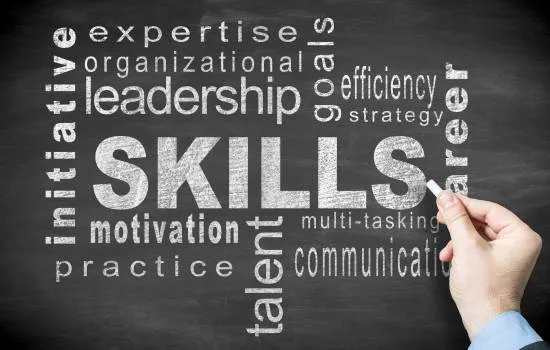Altas habilidades: cómo identificar y potenciar talentos extraordinarios
Advertisements
What if your child had a unique talent… but no one noticed?
Many times, children with high skills pasan desapercibidos, etiquetados como "distraídos", "inquietos" o incluso "rebeldes".
But behind that intense energy and endless questions, there may be a brilliant mind waiting to be understood.
Si alguna vez sentiste que tu hijo o hija "no encaja" en el molde tradicional, este artículo es para ti. Vamos a explorar qué significa realmente tener altas habilidades, cómo detectar los primeros signos, qué apoyos existen y cómo acompañar este desarrollo de manera saludable sin presiones ni etiquetas limitantes.
Advertisements
What are high skills?
When we talk about high skills, no nos referimos únicamente a un "coeficiente intelectual alto".
Giftedness is much more than a number on a testIt's a combination of advanced cognitive abilities, extraordinary creativity, emotional sensitivity, and, often, a deep need to make sense of it all.
The modern definition covers:
Advertisements
- Intellectual capacity far above average.
- Exceptional talent in specific areas (music, mathematics, language, logic, art, etc.).
- Divergent thinking, capable of connecting complex ideas.
- Powerful intuition and metacognitive skills from an early age.
And here comes the important part: Not all gifted children get good grades or behave well in class.In fact, many end up frustrated, bored, or confused because they don't fit into traditional school methods.
Types of High Abilities: Beyond Academic Genius
El término "altas habilidades" incluye diferentes manifestaciones del talento. Veamos las más comunes:
| Skill type | Main Features |
|---|---|
| Intellectual | Great analytical skills, accelerated learning, abstract thinking. |
| Creative | Intense imagination, original thinking, early artistic production. |
| Socio-emotional | High empathy, sense of justice, natural leadership. |
| Psychomotor | Talent in sports, dance, advanced fine and gross coordination. |
| Academic | Outstanding performance in specific school subjects. |
A child may excel in more than one category or in a unique combination. That's why it's key to observe them. without comparisons, with curiosity and openness.
Common signs of giftedness in childhood
Although every child is unique, there are certain behaviors that are common in those who have high skills:
- Learn to read or count on your own and early.
- Advanced vocabulary for their age.
- Insatiable curiosity, asks deep questions.
- Exceptional memory and quick connection of ideas.
- Hyperfocus on topics of interest (dinosaurs, planets, language…).
- High emotional or sensory sensitivity.
- Rejection of standards without logical explanation.
- He prefers to talk with adults or older children.
- Gets bored easily in routine or repetitive contexts.
Caution! These signs don't guarantee a diagnosis, but they are important clues to watch closely for.
Common challenges faced by gifted children
Although it may seem paradoxical, many gifted children they suffer more than they enjoy of their condition when they are not properly accompanied.
Among the main challenges are:
- School failure: Boredom leads to demotivation and poor performance.
- Social isolation: They fail to connect with their peers due to their interests or maturity level.
- Anxiety or depression: sienten que hay algo "mal" en ellos por no encajar.
- Perfectionism: fear of making mistakes, frustration with criticism, or high expectations.
- Disruptive behaviors: as a way of attracting attention or expressing their discomfort.
Therefore, identifying and understanding these signs in time makes a difference in the child's life.
What can parents do to support this development?
It's not about speeding up or overloading. The goal is accompany the child, respecting his or her pace and needs. Here are some valuable recommendations:
1. Active listening and emotional validation
Allow them to express their concerns, fears, and frustrations without minimizing their feelings. Empathy is key.
2. Stimulating, but not demanding environments
Offer a variety of materials (books, games, experiments, music), but let them choose. Learning should be motivated by curiosity, not pressure.
3. Flexibility in routine
Gifted children often need time for personal exploration, sensory breaks, or moments of creative solitude.
4. Search for mentors or references
Profesores, artistas, científicos, escritores... Tener un adulto con quien identificarse fortalece la autoestima y el propósito.
5. Professional emotional support (if necessary)
A psychologist can help process internal conflicts, improve social skills, or address perfectionism.
3 free apps to boost fine motor skills at home
Using technology wisely can be a great ally. Here are three free apps, available on Android and iOS, ideal for stimulating critical thinking, creativity, and self-directed learning:
1. Khan Academy Kids
An educational app with age-appropriate activities. It stimulates language, logic, reading, and math with games and cartoons.
- Recommended age: 3 to 10 years
- Available in: Android
2. MentalUP
Designed by neuroscientists, it offers logic, memory, attention, and reasoning games. Ideal for children with accelerated thinking.
- Recommended age: 6 to 13 years
- Available in: Android
3. Brainly
An educational community where children can ask questions, answer questions, and learn collaboratively. Perfect for those interested in a wide range of topics.

High abilities in adults: a little-discussed topic
Many gifted adults were never identified in childhoodThey live with the constant feeling of being "different," they overthink, they get bored easily, or they get frustrated by not meeting their own expectations.
Did you identify?
Seeking psychological counseling can help you better understand your history, your talents, and how to live more authentically.
Conclusion: recognizing talent is also a form of love
The high skills They are neither a privilege nor a curse. They are simply a different way of perceiving and inhabiting the world. The earlier they are recognized, the greater the child's well-being, self-esteem, and contribution to their environment.
It's not about having all the answers, but about Look carefully, listen with empathy, and offer the right tools. Tal vez ese niño que no para de hacer preguntas... esté destinado a transformar el mundo.

You may also be interested in